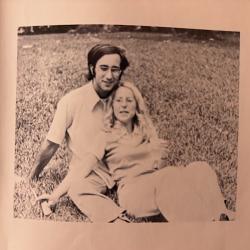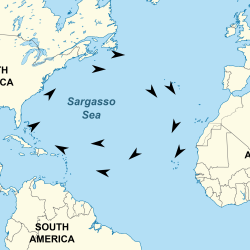A Tribute to Eugenie Clark (May 4, 1922 - Feb. 25, 2015), UMD Professor Emerita in Biology
By Arthur Popper, Biology Professor, University of Maryland
Eugenie “Genie” Clark was my colleague, friend and mentor. I met her in the mid-1960s when I took a graduate class in oceanography with her at City College of New York where she was a faculty member. Several years later, Genie joined the University of Maryland, where she was a faculty member in the Department of Biology for more than 25 years. When I arrived at Maryland in 1987, I was thrilled to reconnect with Genie. At UMD, she taught ichthyology and “terrors of the deep,” among other courses. Genie was an active and caring department member, and her contributions to UMD, particularly her amazing ability to communicate science, were recognized with the university’s President’s Medal. She retired from UMD as professor emerita, a title and position she was most proud of. I visited Genie this past December, and, among other things we discussed the biology department—she delighted in hearing about her colleagues and the department. Genie was a Terp for Life!
Genie’s career spanned over 60 years. She received her doctorate from NYU, where she worked with ichthyologist C. M. Breder, Jr. on sexual isolation in fishes. Genie became famous when she published her autobiography, “Lady with a Spear,” in 1953. The book became an international sensation and appeared on bestseller lists for over a year. Genie also appeared on numerous TV shows and wrote many articles for National Geographic and other popular magazines.
Genie was an extremely accomplished scientist. She was the first person to train a shark to show behavioral responses (a study of shark vision) and one of the first to describe hermaphrodism in fishes. And her studies of fish behavior were superb. When I visited Genie in December, she excitedly showed me proofs of her latest scientific paper and talked of writing a few more papers.
Beyond her high-quality scientific studies, Genie was an amazing science communicator—she made science exciting to everyone from children to professors. Genie was in high demand around the world as a speaker, and her talks combined great science and infectious enthusiasm for science. I recall one week when Genie give a talk on her work to a spellbound group of 10-year-olds in my daughter’s elementary school class, and then she gave a very similar talk to an equally spellbound group of scientists including Stephen Jay Gould and Richard Leakey. Genie was able to captivate audiences and impart an excitement and love of science that were powerful and unique. I know many people, including a good number of women, who decided on careers in science or science-related fields after being inspired by Genie.
Because of her fame as a communicator, Genie got to know, and influence, important people around the world. She worked closely with Anwar Sadat of Egypt to create the first marine preserve in that country. At the same time, she was beloved and honored in Israel. There are numerous stories about Genie’s adventures, but two stand out to me.
When Genie was invited to visit the Crown Prince of Japan (a noted ichthyologist), she discovered that she had to bring a gift. So, she decided to bring a trained shark. She trained an animal and then persuaded her friend Juan Trippe, president of Pan American Airways, to help her and the shark get to Japan. Trippe gave Genie two first-class tickets (one for her and one for the shark). Genie’s biggest “fear” was that the long flight would result in the shark forgetting the task. But, to her delight, after she and the shark deplaned (they were the first off, and Genie walked down a red carpet) and went to the newly built aquarium, the shark performed perfectly, to the amazement of the Crown Prince (now the Emperor of Japan and a close friend of Genie’s).
The second story involves Jacques Cousteau. In the 1960s, Cousteau had a TV show about his cruises on the Calypso. I was in Genie’s class at that time, and all of us watched in amazement as Genie appeared on the very first show in the series. We learned later that Genie was the only woman scientist to ever work on the Calypso.
Genie loved to say she was thrilled that I went from being her student to being her department chair, but I told her many times that I could never see my teacher and mentor as someone to whom I could be “boss.”







